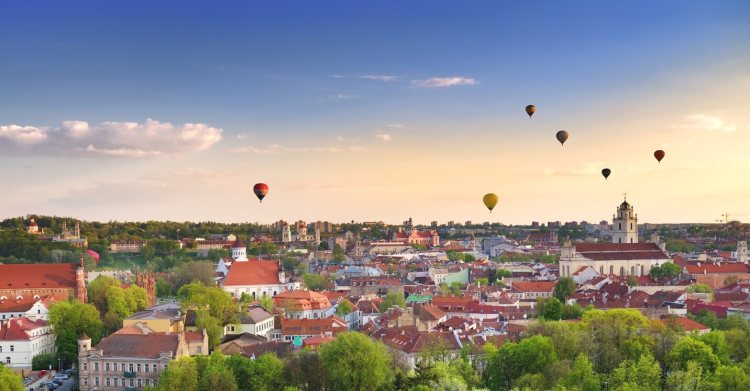Lithuania has launched a new Startup Visa program designed to encourage citizens from outside the European Union (EU) to set up businesses in the small northern European Baltic state.
The Lithuanian government approved new legislation last April that sought to make it easier for “gifted and ambitious innovative startup founders from all around the world” to gain residency within Lithuania, including residency for founders’ families. That program is now open to interested applicants.
The timing of the launch is notable, given what’s been happening in the U.S. since Donald Trump entered the White House. It was widely expected that Trump’s rise to power would lead to greater scrutiny of workers on H-1B visas, and this has proven to be the case, as the Trump administration is currently forging ahead with plans to restrict who can and can’t enter the country. The H-1B visa program currently admits around 65,000 workers and 20,000 graduate student workers to the U.S. each year, but any ban that passes the relevant legal hurdles will impact major technology companies, such as Facebook, which had 15 percent of its U.S. workforce on temporary visas in 2016. This could lead to a major brain drain and is why countries such as Lithuania are on standby to vacuum up budding founders and entrepreneurs looking to build the next big thing.
Startups eligible for Lithuania’s Startup Visa program include any that adhere to “scalable and innovative business models” across electronics, biotech, and the broader IT umbrella.
June 5th: The AI Audit in NYC
Join us next week in NYC to engage with top executive leaders, delving into strategies for auditing AI models to ensure fairness, optimal performance, and ethical compliance across diverse organizations. Secure your attendance for this exclusive invite-only event.
The move follows in the footsteps of neighboring Baltic countries Estonia and Latvia, which have also been pursuing ways to attract talent. Indeed, Estonia has been blazing a trail in the startup realm with its e-Residency program that lets anyone, anywhere in the world start an online business from Estonia — without having to physically live there. And back in November, the Latvian parliament passed a new law to encourage young startups to set up shop in Latvia — a new tax system effectively doubles any money invested by venture capitalists.
Lithuania isn’t particularly renowned on the world stage for its startups, though there are several hundred in operation. Some that are gaining traction include secondhand clothing marketplace Vinted, image-editing app Pixelmator, and mobile gaming company Game Insight. But the point of the country’s new visa program is to create something from the ground up and to build on the broader region’s track record of producing top tech talent — the likes of Skype, TransferWise, and Fortumo all emanate from neighboring Estonia.
“We see startups as an integral part of an innovative economy,” explained Mindaugas Sinkevičius, Lithuania’s minister of economy. “So we open our doors to talent that will both embrace and contribute to our 320-strong startup ecosystem.”

